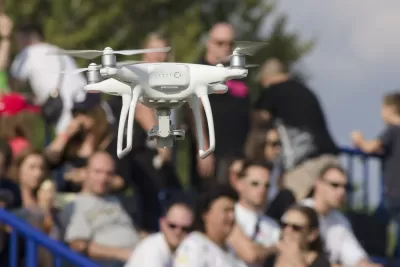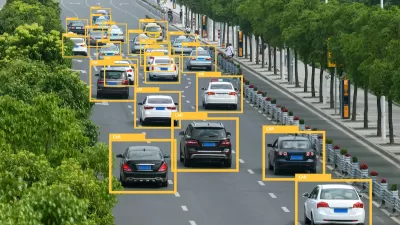Too often, smart city technology is described as an innocuous tool, but Adam Greenfield argues the technology acquiring this data will be used to distribute city resources, an inherently political act.

As smart cities collect more of our information and give cities more data, it's imperative that we understand that the automation of data collection does not make the information perfect or unbiased. In Radical Technologies: The Design of Everyday Life (which has been excerpted and adapted for the Guardian) Adam Greenfield argues that proponents of connected cities exaggerate the benefits of data. "Strongly implicit, is the presumption that whatever policies are arrived at in this way will be applied transparently, dispassionately and in a manner free from politics." No perfect responses to all civic problems exist, and pretending that algorithms can deliver such results endangers cities. "We need to understand that creating an algorithm intended to guide the distribution of civic resources is itself a political act," Greenfield argues.
Greenfield's arguments cover more than cities and deserve to be read in their entirety. While he's not trying to pretend the world can disconnect or should, his investigation centers around cautions like this one. "Advocates of smart cities often seem to proceed as if it is self-evident that each of our acts has a single, salient meaning, which can be recognised, made sense of and acted upon remotely by an automated system, without any possibility of error," a dangerous oversimplification.
FULL STORY: Rise of the machines: who is the ‘internet of things’ good for?

Alabama: Trump Terminates Settlements for Black Communities Harmed By Raw Sewage
Trump deemed the landmark civil rights agreement “illegal DEI and environmental justice policy.”

Study: Maui’s Plan to Convert Vacation Rentals to Long-Term Housing Could Cause Nearly $1 Billion Economic Loss
The plan would reduce visitor accommodation by 25% resulting in 1,900 jobs lost.

Planetizen Federal Action Tracker
A weekly monitor of how Trump’s orders and actions are impacting planners and planning in America.

Waymo Gets Permission to Map SF’s Market Street
If allowed to operate on the traffic-restricted street, Waymo’s autonomous taxis would have a leg up over ride-hailing competitors — and counter the city’s efforts to grow bike and pedestrian on the thoroughfare.

Parklet Symposium Highlights the Success of Shared Spaces
Parklets got a boost during the Covid-19 pandemic, when the concept was translated to outdoor dining programs that offered restaurants a lifeline during the shutdown.

Federal Homelessness Agency Places Entire Staff on Leave
The U.S. Interagency Council on Homelessness is the only federal agency dedicated to preventing and ending homelessness.
Urban Design for Planners 1: Software Tools
This six-course series explores essential urban design concepts using open source software and equips planners with the tools they need to participate fully in the urban design process.
Planning for Universal Design
Learn the tools for implementing Universal Design in planning regulations.
Caltrans
Smith Gee Studio
Institute for Housing and Urban Development Studies (IHS)
City of Grandview
Harvard GSD Executive Education
Toledo-Lucas County Plan Commissions
Salt Lake City
NYU Wagner Graduate School of Public Service





























